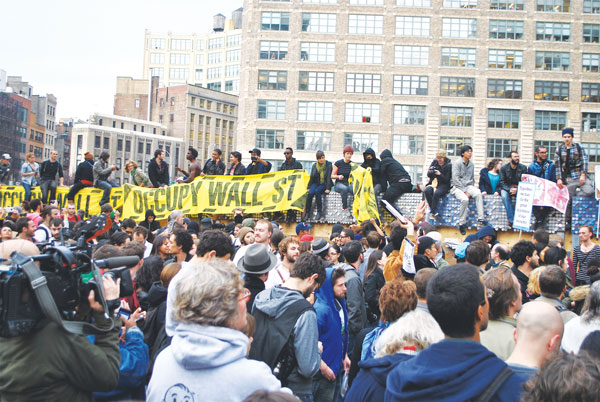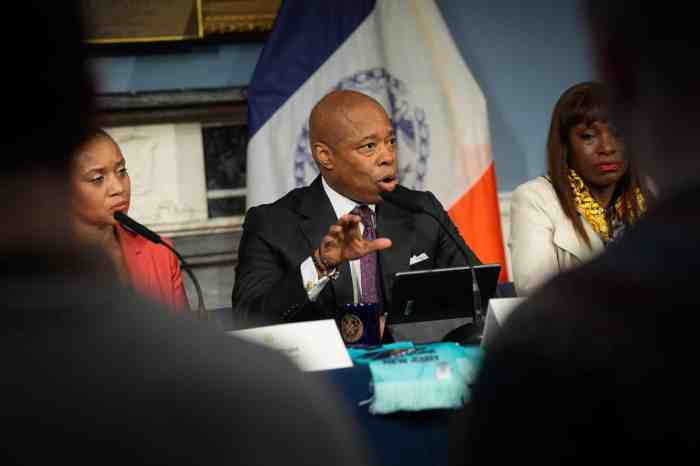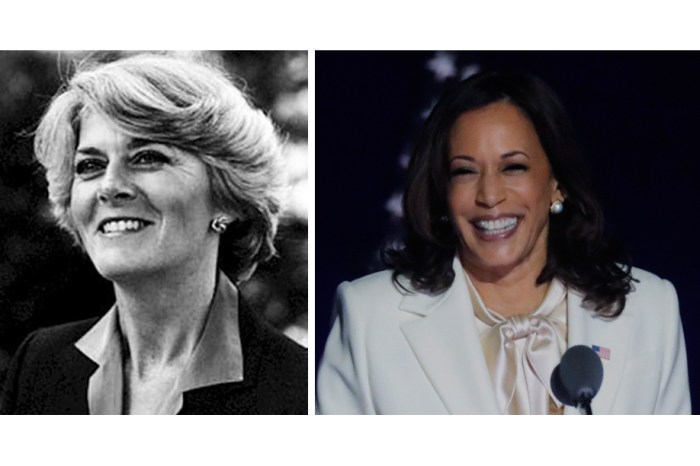By BILL WEINBERG | For the first time since the 1999 Seattle protests, a movement in the United States is in the vanguard of global resistance to capital. But this time, the stakes are much higher. Now, from Europe to the Arab world to South America to Manhattan and Oakland, the planet seems headed into a revolutionary situation. Occupy Wall Street, which has brought the struggle to the very nerve center of world capitalism, has responsibilities on a world scale. There are some things that it is very important that we get right.
Lots of criticism of the O.W.S. movement is of course being made dismissively and dishonestly. It is not necessary, as so many insist, that the movement immediately adopt a discrete list of demands. It is probably healthier if a set of demands emerges from an organic process, after being hashed out on the ground. But it is important that we debate ideas, and not allow suppression of serious differences in the name of unity. This has already led to the movement’s message being garbled. The most significant example is the unfortunate hedging on anti-capitalism.
Some Occupiers have objected to the media calling the movement “anti-capitalist.” A slogan has even been heard in response to this moniker: “We aren’t against capitalism, we’re against corporate greed.” The assumption behind this response is that with enough public oversight or (in the more reactionary versions) if Wall St. brokers acted with greater patriotism, capitalism could “work.”
This equivocation is leading to the proliferation of some very bad ideas in the movement. Instead of class analysis, we are getting more and more gold-standard crankery, Federal Reserve fetishism and other right-wing, pro-capitalist responses to the crisis. Partisans of Ron Paul are a visible presence at O.W.S. They are plugging a free-market Republican whose rhetoric targets the Federal Reserve Bank for the wrong reasons — not because a private institution has been granted a public function, but because, in his words, it has a “loose monetary policy” that favors “big-spending politicians.”
This has been standard Republican code since Reagan for too much social spending and perceived coddling of the working class. Even Murray Rothbard, ideological guru of laissez-faire capitalism, has been put forth by some at Liberty Plaza as providing the answers to the current crisis. He actually provides a more extreme version of precisely the policies that got us where we are now.
All the talk about returning to the gold standard is particularly ironic. The U.S. went off the gold standard under Franklin D. Roosevelt not because of some nefarious scheme by bankers, but in response to a popular groundswell — and in spite of the wishes of the banking elite! In 1896, when the populist candidate William Jennings Bryan famously said before the Democratic Convention in Chicago, “You shall not crucify mankind on a cross of gold,” he was referring to exactly the big-money interests that we are protesting today. Then, it was understood that the gold standard and “tight monetary policy” were good news for the bankers and brokers — and bad news for the rest of us.
Obviously, the gold standard did nothing to prevent the Great Depression, and F.D.R. abandoned it precisely to bring some relief to the country’s working people and unemployed. Since then, the population has greatly expanded, far outstripping the gold supply — making the gold standard even less tenable, and more of an inevitable mechanism for imposing austerity.
The proffering of such retrogressive pseudo-solutions is worse than self-defeating — it threatens to undo the all the progress O.W.S. has made in stealing the populist fire from the Tea Party. No, the Ron Paul folks aren’t nearly as toxic as the Teabaggers, but they both represent a right-wing response to the crisis. Rather than wooing Tea Party rank and file away from their odious leadership, we run the risk of the reverse happening — our own movement being subject to a stealth takeover by our worst enemies.
Inevitably, anti-Semitism emerges in right-wing populist exploitation of rage against financial elites — the Jews being history’s special scapegoats in this context. Activists have become confused on this question because the pro-corporate right (not to mention the pro-Israel right) portray anti-Semitism as a phenomenon of the left, and cynically use the charge to delegitimize any challenge to the system. But just because right-wing pundits use the charge of anti-Semitism as a baseball bat to beat O.W.S. with doesn’t mean (as the movement’s defenders reflexively argue) that it is free from any taint of anti-Semitism.
In fact, O.W.S. Web pages are positively infested with Jew-hating comments — possibly left by mere Internet trolls rather than actual activists, but still met with little protest or repudiation. Many protesters at Liberty Plaza have in fact repudiated the persistent wingnut in their ranks (seized upon by the pundits and propagandists) with the sign reading, “Google Jewish Billionaires.” The recent case in Los Angeles in more disturbing — a protester who proved to be a local schoolteacher ranted into a TV mike about how “the Zionist Jews who are running these big banks and the Federal Reserve…need to be run out of the country.” She was subsequently sacked from her job, and local TV news reported that Occupy L.A. activists held a rally at the L.A. School District in her defense.
Defending her free speech rights would be legitimate — if the protesters made clear that they repudiated what she said. Adding to the confusion, it was also reported that Occupy L.A. activists had protested at the School District over budget cuts and teacher layoffs — raising the possibility that media accounts had conflated the two issues. In any case, there has been little and lukewarm repudiation of the ugly comments from Occupy L.A., and nobody has come forward to clarify the reports of a protest held in the teacher’s defense.
On a far lesser but still irksome point, the ubiquitous Guy Fawkes mask, popularized by the movie “V for Vendetta,” is a very poor symbol for the movement. By using it, we are allowing Hollywood to commodify and recuperate our dissent. Worse, the movie was highly problematic, glibly glorifying terrorism and adventurism. Worse still, the actual Guy Fawkes was even more problematic, not only a (would-be) terrorist and adventurist, but a reactionary Catholic militant who hoped his plot would spark a Spanish invasion of England. Finally, the proverbial 99 percent of the O.W.S. protesters probably don’t even know who Guy Fawkes was.
It should also be noted that some elements attracted by the Occupy movement who purport to be anti-capitalist are, in their own way, just as problematic as the right-wing populists — the various sectarian Stalinist cults (the worst being the Workers World Party) that inevitably attach themselves like leeches to any authentic popular upswell in the United States and especially New York City. But that’s another discussion.
The O.W.S. movement will become truly dangerous to the global power structure if it can unite meaningfully with the European econo-protests (especially in Spain and Greece), the revolutionary movements in the Arab world, the student strikes in Chile and Colombia — and, if it can overcome its equivocation on the Palestinian question, the movement protesting rising rents in Israel. The coordinated global protests on Oct. 15 were a powerful step in this direction.
The recent Egyptian march in solidarity with the Oakland protests was another significant sign of hope. Egyptians marching from Tahrir Square to the U.S. embassy carried hand-written signs reading “#OAKLAND #GREECE #LONDON #SYDNEY –> THE SAME GOAL” and “FROM EGYPT TO WALL STREET: DON’T AFRAID, GO AHEAD.”
Washington and the West have been doing everything they can to control the political trajectory of the Arab Spring, to impose an imperial agenda on the freedom movement by posing as its defender, to downplay demands for economic justice in favor of (narrowly defined) “democracy,” and to conflate “freedom” with “free markets.” If imperialism succeeds in imposing its agenda, the coming contest in the Arab world could be one of Western-backed technocrats versus fundamentalist jihadis.
Similarly, if right-wing populism holds sway over the Occupation movement, the emerging struggle in the United States could be neutralized in the bud, narrowing to one between populist and corporate exponents of the political right. In short, all the potential of 2011’s amazing advances for progressive forces on the global stage could be squandered — and those advances radically reversed.
Bad ideas don’t just go away. They have to be opposed. Apart from the outright Jew-haters and other racists, nobody should be purged from the Occupation movement. But the purveyors of bogus populism must be confronted and debated, and their faulty formulas exposed and rejected. Otherwise, all our efforts could be derailed into a simulacrum of resistance easily recuperated by the ruling elites.
The movement needs to start saying it clearly: Yes, the problem is capitalism. “Greed” isn’t a moral failing, it is the governing principle of society, systematically rewarded by our economic institutions. Capitalism is predicated on limitless acquisition, on exploitation of human labor, on the maintenance of a permanent underclass, on concentration of wealth in the hands of the few and pauperization of the many, and ultimately on the destruction of the planet. Greater public oversight of the financial sector and repealing corporate personhood and even nationalizing the Fed are good demands. But we must understand that such public restraints on the workings of capitalism are necessary because of the system’s inherent rapaciousness. We must dare to dream and to speak of its eventual abolition — and to struggle for it.
Even the nebulous and anemic word “liberal” has been effectively demonized in U.S. political discourse since Reagan. The fear of being seen as “socialist” is deep-seated. It is time to get over it, and reclaim the word, as gays did the word “queer.” The concept that the Earth and its wealth belong to society must be redeemed. Everything, ultimately, is riding on it.


















